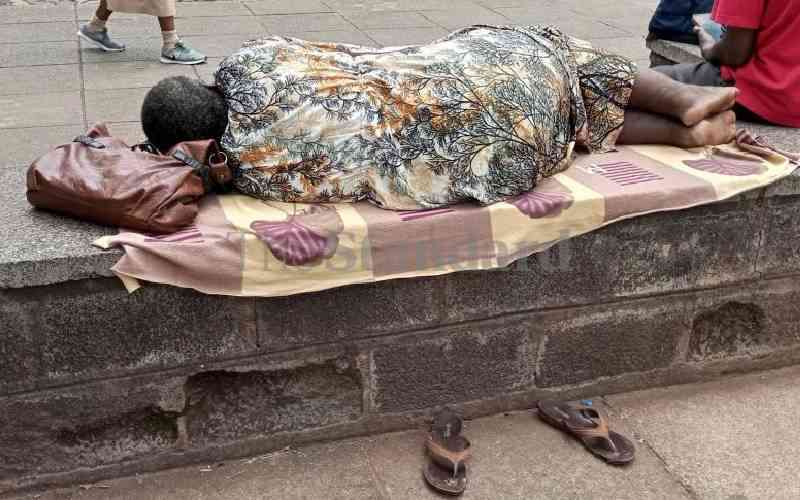×
The Standard e-Paper
Fearless, Trusted News

On the sixth floor of Kenyatta National Hospital, Isaac Kariuki lies on his bed along the corridor. He cannot walk or sit. He has a cracked spine. He fell in February, was brought at KNH and that corridor has been his home ever since.
He is among patients in need of critical care at the hospital after patients with less serious ailments were transferred to other hospitals due to the ongoing doctors' strike.